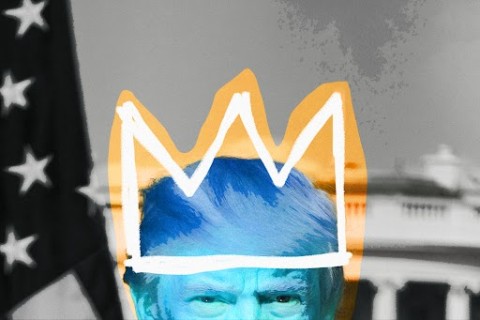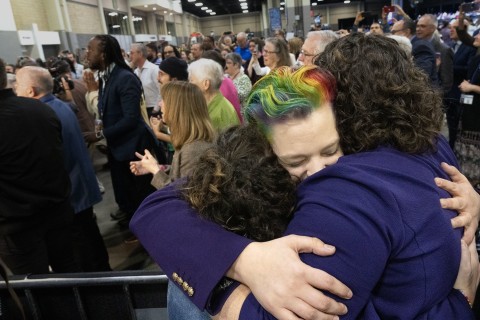The Court’s embrace of the divine right of presidents
In the Trump v. United States oral arguments, the conservative justices sought what Justice Gorsuch called “a rule for the ages”—one that doesn’t impair the sovereign grandeur of presidential power.

Century illustration
The Supreme Court had never before made me think of the late, great religion scholar Jonathan Z. Smith. But last Thursday, listening to the oral arguments in Donald Trump’s petition to have his indictments relating to January 6 quashed on the grounds of absolute presidential immunity, I remembered Professor Smith saying, through his habitual grin and his halo of smoke-yellowed hair, “there is no such thing as a non-divine king.” We were having a class discussion of the theory of “sacred kingship” in James George Frazer’s The Golden Bough, and I was deeply skeptical. Even those shadowy suit-wearing monarchs in northern Europe are avatars of divinity? That’s just a toned-down version of the wacky superstitions we’d been reading about, in which the king has healing powers and ensures the fertility of the land?
But I repent: the Supreme Court has convinced me that divine kingship is alive and well in the heart of our own world.
The claim being entertained—which appears likely to be at least partially affirmed—is that presidents enjoy total immunity from criminal prosecution for “official” actions taken while in office. On one hand, this is simply the Court continuing to serve as just another partisan venue, whose conservative majority seems poised to help Trump defer any trial until after the election. But beyond the immediate exigencies of party politics, the Court embraced a striking rhetoric of presidential inviolability that goes beyond mere deference to the office of the president. It wraps the person of the president in a monarchical dignity previously unknown in our republican and Enlightenment constitutional order.




